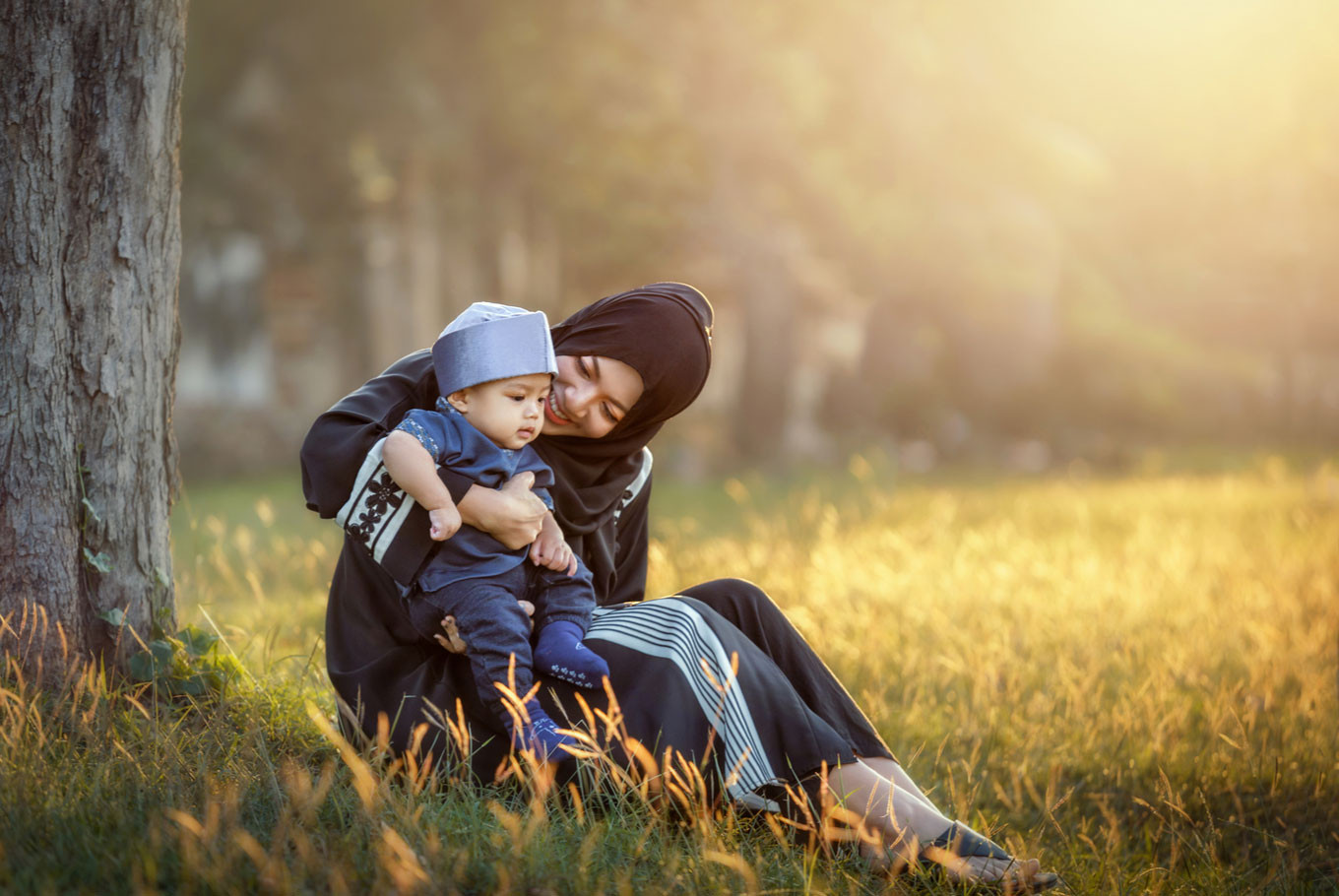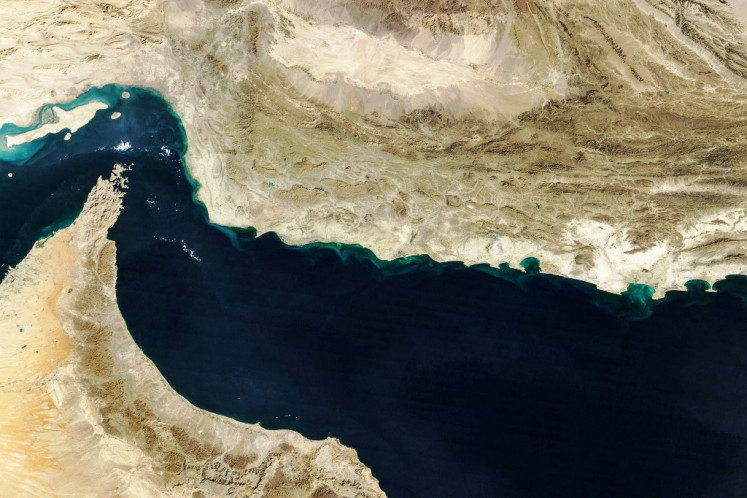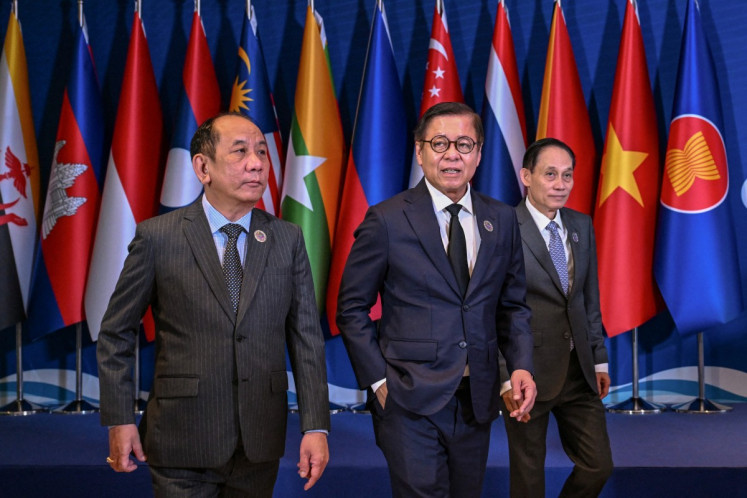Popular Reads
Top Results
Can't find what you're looking for?
View all search resultsPopular Reads
Top Results
Can't find what you're looking for?
View all search resultsHijrah movement and millennials ahead of 2019 election
It seems the hijrah trend among celebrities continues; several musicians, TV hosts and actors have publicly declared their intention to hijrah, or to leave their less Islamic ways toward a more religious way of life.
Change text size
Gift Premium Articles
to Anyone
L
ast November several celebrities hosted a festival in Central Jakarta called Hijrah Festival, in reference to individual Muslim shifts towards a more religious way of life. The program was held for three days featuring sermons from many well-known preachers such as Abdul Somad, Adi Hidayat, Salim Fillah, Felix Siauw and Hanan Attaki. The festival committee chairman former MTV VJ Arie Untung stated the festival aimed to unite brotherhood among Muslim. Even though tickets were relatively not cheap at around Rp 80,000 (US$5.66), around 12,000 tickets were reportedly sold out. Due to this success, the committee plans to hold another such festival in the Islamic fasting month of Ramadhan.
It seems the hijrah trend among celebrities continues; several musicians, TV hosts and actors have publicly declared their intention to hijrah, or to leave their less Islamic ways toward a more religious way of life.
Now the trend of individual shifts is expanding to become a movement to persuade others to do the same, mainly by establishing religious forums. One is the kajian musyawarah, loosely translated as a consultation of studies that gathers celebrities interested in becoming more pious Muslims. The initiators also include actors and TV personalities Teuku Wisnu, Dimas Seto, Baim Wong, Irwansyah dan Dude Harlino. Recently Raffi Ahmad and his wife have also joined this religious program with others calling themselves the “hijrah squad”. They actively promote their activities through social media platforms such as Instagram and Twitter. They also initiate and support mass religious gatherings (tabligh akbar) such as the latest in late January with cleric Abdul Somad in Bandung, West Java.
In general, this movement is a positive activity toward a better way of life based on Islamic values. What makes this movement interesting is its tendency to detach itself from influential Islamic ideologies and organizations in the country, as reflected in the highly diverse outlooks and preaching of the featured clerics.
They include Khalid Bassalamah who promotes Islamic teaching based on the Salafi interpretation, Felix who preached in favor of the caliphate, in line with the aspiration of the banned Hizbut Tahrir Indonesia, and Adi Hidayat, a former board member of Muhammadiyah special branch in Libya. Although Somad promotes the Shafi’ī school embraced by the largest Islamic organization in Indonesia, Nahdlatul Ulama (NU), he does not seem bound to NU.
The preachers can even be contradictory: Somad supports the maulid celebration of the birth of Prophet Muhammad which Khalid rejects. Unlike Felix, Khalid supports the government and refuses to publicly criticize any ruling government – in line with the advice that Muslims should follow their government (umarah).
As many Indonesian Muslims belong to certain religious streams and organizations such as NU, Muhammadiyah or follow the Salafi school and Jamaat Tabligh, for instance, it would be interesting to see how the members of the hijrah movement perceive themselves among those mainstream religious schools and affiliations.
As the scholars Samuli Schielke and Liza Debevec note, Muslims’ everyday practice is ambivalent and at times contradictory. It is embedded in traditions, relations of power and social dynamics, but it is not determined by them. Indeed the members of kajian musyarawah don’t seem to really care whether they are following specific Islamic organizations or specific religious practices as long as they are “Islam”, as seen in the contradictions among the above preachers.
Regarding the upcoming elections, it will be also interesting to see how this new trend influences Muslim millennials in their political choices, as they seem removed from the traditional influence of the largest organizations, NU and Muhammadiyah
The Australian scholar Greg Fealy has stated that Muslim’s everyday practice will determine Muslims’ participation and choice in this democratic country. These are particularly the Muslims unaffiliated to religious organizations such as NU, as he told tirto.id last December. Seeing the emergence of hijrah movement among some repentant celebrities, we will still have to find out how this prediction of their voting behavior turns out in the 2019 legislative and presidential elections.
***
The writer is a lecturer at the University of Hasyim Asy’ari (Unhasy), Pondok Pesantren Tebuireng, Jombang, East Java.










